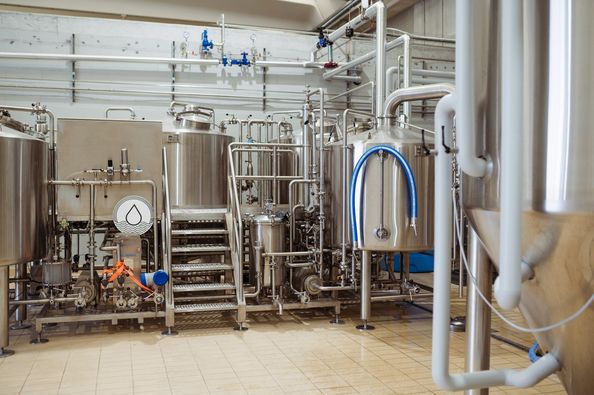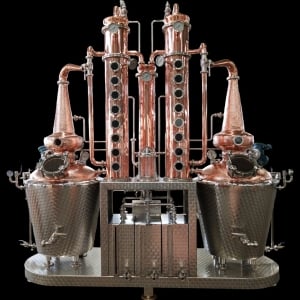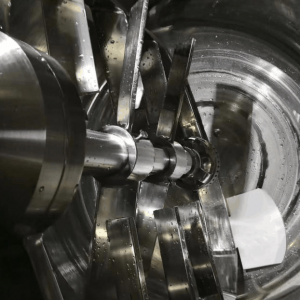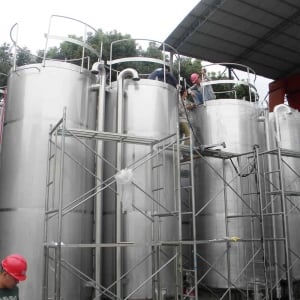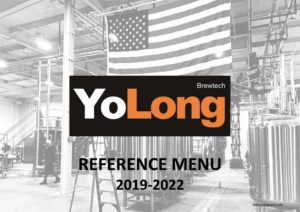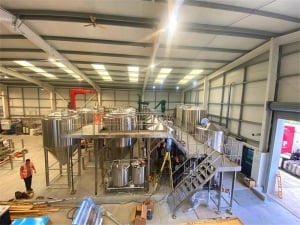Table of Contents
ToggleWhat is Nanobrewery Equipment?
Nanobreweries are a subset of the brewing industry that focuses on producing beer in small quantities, often for local consumption or niche markets. As the name implies, ‘nano’ means very small, so nanobreweries typically produce much less beer than even microbreweries. The equipment used in a nanobrewery is specifically designed to cater to these smaller batch sizes.
- Definition of Nanobrewery Equipment: At its core, nanobrewery equipment includes the apparatus necessary for the mashing, fermenting, filtering, and bottling or kegging of beer. This includes mash tuns, fermentation tanks, kettles, and more. The main difference between nanobrewery equipment and equipment used in larger breweries is the scale.
- Scale of Production: A nanobrewery might produce as little as one barrel of beer in a single batch (a barrel is about 31 US gallons). This is in contrast to larger microbreweries or regional breweries that can produce tens or hundreds of barrels in a single batch.
- Why Choose a Nanobrewery? Many aspiring brewers choose to start with a nanobrewery because it requires less initial investment in terms of money and space. It allows for more experimentation with recipes, as a smaller batch size means a mistake won’t result in a large financial loss.
- Homebrewing vs. Nanobrewing: It’s important to differentiate between homebrewing and nanobrewing. While both involve brewing beer on a small scale, homebrewing is generally for personal consumption, while nanobrewing aims at selling to the public. Thus, the equipment for nanobreweries is often more robust and adheres to stricter standards of production.
- Examples of Equipment:
- Mash Tun: Used to mix the crushed grains with water and heat this mixture.
- Boil Kettle: Where hops are added and the wort (unfermented beer) is boiled.
- Fermentation Tanks: Where yeast is added, and the beer undergoes fermentation.
- Brite Tanks: Used to carbonate the beer before packaging.
- Packaging Equipment: For bottling, canning, or kegging the finished beer.
- Innovations in Nanobrewery Equipment: With the rise in popularity of nanobreweries, many companies are now offering equipment tailored for this scale of production. Advanced systems can automate various steps of the brewing process, allowing the brewer to achieve consistent results with less manual intervention.
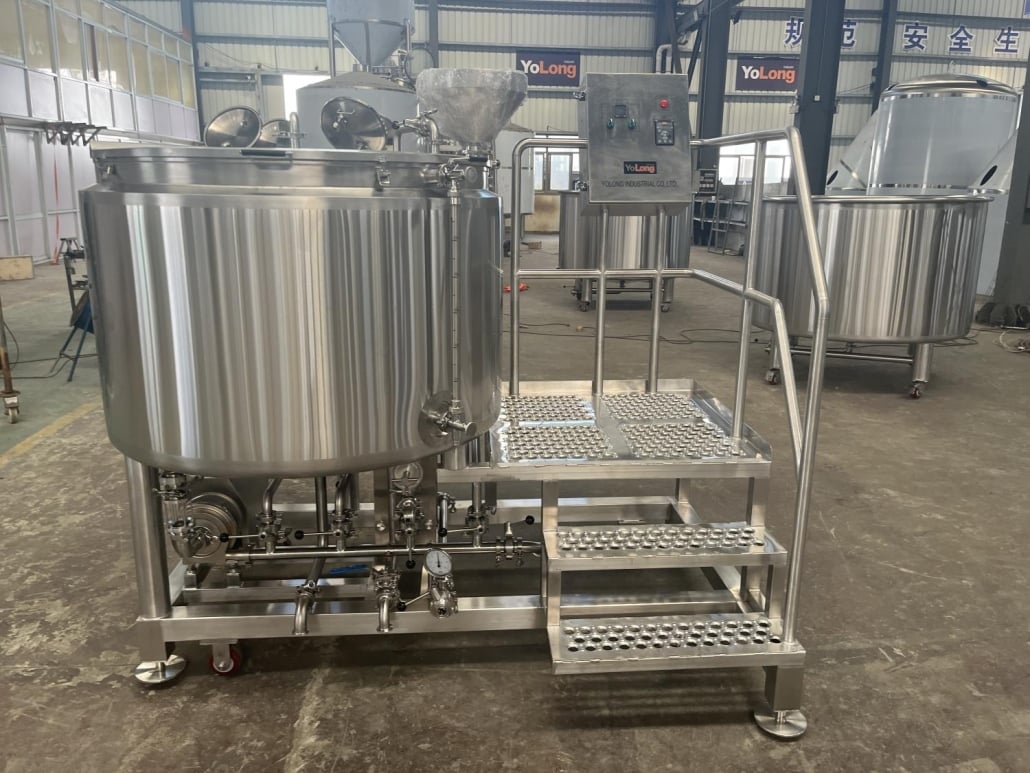
How Much Does Nanobrewery Equipment Cost?
Nanobrewery equipment varies in cost based on the size, features, and manufacturer of the machinery. Investing in a nanobrewery is generally less expensive than starting a larger brewery, but costs can still add up, especially when striving for professional quality.
- Factors Influencing Cost:
- Size and Capacity: Larger tanks and kettles will generally be more expensive.
- Material: Equipment made from high-grade stainless steel, which is preferred for durability and sanitation, tends to be pricier.
- Automation: Automated systems that control temperature, flow rates, and other factors can increase the cost.
- Brand: Well-known brands might command higher prices due to their reputation for quality and durability.
- Initial vs. Ongoing Costs: It’s essential to consider not just the initial purchase price but also the ongoing costs of maintenance, cleaning, and potential upgrades.
- Bundled vs. Individual Purchases: Some manufacturers offer bundled equipment packages, which can provide cost savings compared to purchasing each piece individually.
- Used Equipment: Many nanobreweries start by purchasing used equipment, which can significantly reduce startup costs. However, it’s crucial to thoroughly inspect used equipment to ensure it’s in good working condition.
- Financial Assistance: Some companies offer financing options for purchasing equipment, which can help spread out the initial investment.
| Equipment Type | Low-End Cost | High-End Cost |
|---|---|---|
| Mash Tun | $500 | $3,000 |
| Boil Kettle | $500 | $3,500 |
| Fermentation Tank (1bbl) | $800 | $4,000 |
| Brite Tank (1bbl) | $1,000 | $4,500 |
| Packaging Equipment | $1,500 | $10,000 |
- Popular Brands and Their Price Ranges:
- Blichmann Engineering: Renowned for their quality, their equipment typically starts at the higher end of the price spectrum. A 1bbl Blichmann fermenter can range from $2,500 to $3,500.
- Ss Brewtech: They offer a range of sizes and are known for their innovative features. A 1bbl fermenter from Ss Brewtech might cost between $1,500 and $2,500.
- Stout Tanks and Kettles: Specializing in high-quality stainless steel equipment, Stout Tanks and Kettles offer products starting from $1,000 and can go up to $5,000 for more extensive setups.
- Additional Expenses: Remember to factor in the cost of installation, any necessary modifications to your brewing space, and training on new equipment. These additional expenses can significantly impact the total cost of starting a nanobrewery.
What are the Types of Nanobrewery Equipment?
Diving into the brewing industry, especially at the nano-scale, requires a grasp of the diverse types of equipment necessary for beer production. From the initial stages of mashing grains to the final packaging, each step has specific tools tailored for efficiency and quality. This article will shed light on the essential types of nanobrewery equipment and their respective price ranges.
- Mashing Equipment: The mashing process is pivotal for converting starches in grains into fermentable sugars.
- Mash Tuns: These are insulated vessels where crushed grains mix with hot water. The subsequent chemical reactions create a sugary liquid called wort.
- Price Range: $500 to $3,000 based on capacity and material.
- Boiling Equipment: Post-mashing, the wort requires boiling, primarily for sterilization and hop infusion.
- Boil Kettles: They are designed to heat the wort to boiling temperatures and sustain the heat for a specific duration.
- Price Range: $500 to $3,500, influenced by size and features.
- Fermentation Equipment: This phase involves yeast, which consumes the sugars from the wort and produces alcohol.
- Fermentation Tanks: These sealed vessels provide an optimal environment for yeast activity. They come in different shapes, with conical bottoms being popular for easy yeast collection.
- Price Range: $800 to $4,000, depending on capacity and build quality.
- Conditioning and Maturation: Post-fermentation, the beer needs refining to develop its flavors fully.
- Brite Tanks: Here, the beer undergoes carbonation and matures, readying itself for packaging.
- Price Range: $1,000 to $4,500, swayed by size and features.
- Packaging Equipment: The final step involves readying the beer for sale and distribution.
- Bottling, Canning, and Kegging Machines: Depending on the brewery’s scale and target market, they might opt for one or a combination of these.
- Price Range: $1,500 to $10,000, influenced by automation levels and output capacity.
Functions of Nanobrewery Equipment
Crafting the perfect brew isn’t just about having the right ingredients. The equipment used plays a critical role in defining the final flavor, aroma, and mouthfeel of the beer. Each piece of nanobrewery equipment has been engineered for a specific function in the brewing process.
- Mash Tuns: Their primary function is to facilitate the enzymatic conversion of starches into fermentable sugars. By maintaining a steady temperature, they ensure the mashing process occurs efficiently.
- Boil Kettles: Beyond just boiling the wort, these kettles play a crucial role in pasteurizing the liquid, ensuring no unwanted microorganisms persist. Additionally, they aid in the extraction of flavors and aromas from hops.
- Fermentation Tanks: These are more than just storage containers. They provide the perfect environment for yeast to thrive, facilitating efficient fermentation. Some even come with temperature control mechanisms to ensure the yeast remains active and healthy.
- Brite Tanks: The functions of a brite tank include maturing, carbonating, and clarifying the beer. They are essential for achieving the desired flavor profile and carbonation levels in the final product.
- Packaging Equipment: Bottling and canning machines not only fill containers with beer but also ensure minimal oxygen exposure, which can degrade beer quality. Kegging machines fill kegs under pressure, ensuring the beer remains fresh and carbonated for extended periods.
- Auxiliary Equipment: Beyond the primary machines, other tools aid in the brewing process. Pumps help transfer liquid between tanks, while heat exchangers cool the wort rapidly post-boiling. These ancillary tools, though often overlooked, are vital for an efficient brewing process.
Applications of Nanobrewery Equipment
Nanobreweries have emerged as an innovative segment within the brewing industry. Their small-scale operation allows for creativity, experimentation, and a focus on local markets. But what exactly are the applications of nanobrewery equipment in this brewing niche?
- Experimental Batches: Due to their smaller scale, nanobreweries can afford to experiment more. They can test novel ingredients, brewing techniques, or unique flavor profiles without the risk of producing large unmarketable batches.
- Local Brews: Nanobreweries often cater to local markets. Their equipment can be used to produce beers that reflect local tastes, ingredients, or cultural nuances.
- Seasonal Offerings: With the ability to quickly shift production, nanobreweries can produce seasonal brews. Whether it’s a summer ale infused with local fruits or a winter stout with spices, their equipment can adapt to these periodic shifts.
- Educational Demonstrations: The compact nature of nanobrewery equipment makes it ideal for educational purposes. Breweries can offer tours, showcasing the beer-making process up close. Such experiences often deepen the connection between the brewery and its patrons.
- Collaborative Brews: Nanobreweries often collaborate with local businesses, be it coffee shops, bakeries, or farms. Their equipment can integrate ingredients like coffee beans, pastries, or fresh produce into unique collaborative brews.
- Limited Edition Releases: With smaller batch sizes, nanobreweries can release exclusive, limited-edition brews. These special releases, often aged in barrels or infused with rare ingredients, become sought-after products.
- Pilot Batches: Even larger breweries can benefit from nanobrewery equipment. They can use it to produce pilot batches – smaller test runs to gauge a beer’s potential success before scaling up production.
- Personalization: Some nanobreweries offer personalized brewing experiences. Customers can craft their beer recipes, and the brewery utilizes its equipment to bring these personal creations to life.
Given the versatility and adaptability of nanobrewery equipment, it’s evident that their applications go beyond just brewing. They facilitate experimentation, community engagement, education, and more, enriching the craft beer landscape.
Nanobrewery equipment is tailored to cater to small-scale brewing operations. But what exactly are the benefits these specialized tools bring to the table? Whether you’re an aspiring brewer or a seasoned professional eyeing expansion into the nanobrewery niche, understanding the advantages is crucial.
- Scalability: For individuals entering the brewing industry, investing in large-scale equipment might be financially daunting. Nanobrewery equipment offers an affordable entry point. It allows brewers to start small, refine their craft, build a customer base, and eventually scale up as demand increases.
- Flexibility in Brewing: One of the most significant advantages is the ability to experiment. Given the smaller batch size, brewers can test different recipes, hop varieties, or brewing methods without the risk of wasting large quantities of ingredients. It fosters creativity and innovation, allowing brewers to craft unique, stand-out brews.
- Reduced Overhead Costs: Operating at a nano-scale means less water, fewer ingredients, and lower energy consumption. This results in reduced overhead costs. Additionally, the equipment’s compact size often translates to smaller space requirements, decreasing rental costs.
- Quick Return on Investment (ROI): Given the lower initial investment and operational costs, nanobrewery equipment can offer a quicker ROI. Selling directly to consumers, be it via taprooms or local events, can further increase profit margins, ensuring the investment in equipment pays off rapidly.
- Enhanced Community Engagement: Nanobreweries, by definition, cater to local communities. Having equipment tailored for this scale allows for more intimate engagement events, like brewery tours, tasting sessions, or brewing workshops. This not only drives sales but also fosters brand loyalty.
- Eco-friendly Operations: Small-scale brewing can be more sustainable. It often results in reduced waste, lower energy consumption, and a smaller carbon footprint. Some nanobrewery equipment is even designed with eco-friendliness in mind, utilizing energy-efficient methods or incorporating recycled materials.
- Optimized for Freshness: Given the smaller scale, batches are often brewed more frequently, ensuring that the beer on offer is always fresh. This emphasis on freshness can be a significant selling point, differentiating the brews from mass-produced counterparts that might have been stored for extended periods.
How to Choose Nanobrewery Equipment
Navigating the vast world of brewing equipment can be overwhelming, more so when you’re targeting the niche of nanobreweries. Here’s a comprehensive guide to assist you in making an informed decision.
- Assess Your Brewing Goals: Before diving into purchases, understand your brewing aspirations. Are you looking to purely experiment? Do you aim to cater to local events or perhaps operate a taproom? Your goals will significantly influence the type and scale of equipment you’ll require.
- Space Constraints: Gauge the space available for your brewing operations. Nanobrewery equipment is generally compact, but space requirements can vary. It’s essential to ensure that your chosen equipment fits comfortably, allowing room for operation, maintenance, and potential future expansion.
- Budgetary Considerations: Establish a clear budget. There’s a wide range of equipment available at varying price points. While it’s tempting to opt for the cheapest, it’s vital to ensure that quality isn’t compromised.
- Research Brands and Manufacturers: There are numerous manufacturers in the market, each with its strengths. Delve deep into research, reading reviews, seeking testimonials, and perhaps even visiting facilities if possible. The reputation of the manufacturer often speaks volumes about the equipment’s quality and reliability.
- Prioritize Essential Features: While some features are nice to have, they might not be necessary for your brewing style. List down the essential features you require and use this as a filter when shortlisting equipment.
- Evaluate Energy Efficiency: In the long run, energy-efficient equipment can result in significant cost savings. Additionally, they’re more environmentally friendly. Check for energy ratings or seek equipment designed with sustainable practices in mind.
| Consideration | Description |
|---|---|
| Brewing Goals | Define your aspirations and scale of operations. |
| Space Constraints | Ensure equipment fits comfortably in your designated space. |
| Budget | Determine a clear budget and stick to it. |
| Brand Reputation | Research manufacturers and prioritize reputable ones. |
| Essential Features | List down critical features and use it as a selection filter. |
| Energy Efficiency | Opt for equipment that conserves energy and reduces costs. |
Best 10 Nanobrewery Equipment Manufacturers
Nanobrewing, given its rising popularity, has led to a surge in equipment manufacturers catering to this niche. But with numerous options available, how do you discern the best from the rest? Here’s a curated list of the top 10 nanobrewery equipment manufacturers, ensuring quality, reliability, and value for money.
- Blichmann Engineering: A revered name in the industry, Blichmann is known for its innovative designs, quality materials, and excellent customer service.
- Stout Tanks and Kettles: Specializing in stainless steel equipment, Stout offers a comprehensive range for both beginners and seasoned brewers.
- Braumeister: Hailing from Germany, Braumeister’s equipment is recognized for its precision engineering and efficient designs.
- Ss Brewtech: With a focus on innovation, Ss Brewtech offers a range that seamlessly blends functionality with aesthetics.
- Portland Kettle Works: A trusted name, PKW provides turnkey solutions, ensuring you have everything you need to kickstart your brewing journey.
- MoreBeer!: A one-stop-shop for brewing enthusiasts, MoreBeer! offers a vast range of equipment, catering to both novices and professionals.
- American Beer Equipment (ABE): Known for its quality and reliability, ABE’s range is extensive, ensuring there’s something for every brewer.
- Ruby Street Brewing: With a focus on homebrewers and nanobreweries, Ruby Street’s equipment is compact, efficient, and built to last.
- Psycho Brew: Renowned for its custom-built solutions, Psycho Brew allows brewers to tailor equipment to their specific needs.
- BrewBuilt: Fusing modern design with traditional techniques, BrewBuilt’s range ensures efficiency, reliability, and exceptional beer quality.
While the aforementioned manufacturers are recognized for their excellence, it’s essential to conduct personal research, gauge individual needs, and perhaps even seek recommendations from fellow brewers. Every brewing journey is unique, and the equipment should mirror that individuality.
Where to Buy Nanobrewery Equipment
With the surge in popularity of craft beers and homebrewing, the demand for nanobrewery equipment has also risen. But where does one start when looking to purchase such equipment? There are several key points to consider when sourcing the ideal equipment for your brewing needs, and knowing where to look can make all the difference.
- Local Suppliers: Begin by checking out local suppliers or distributors in your area. These can be beneficial as you may save on shipping costs, and there’s the added advantage of easily accessible after-sales service. Local suppliers often have showrooms where you can physically inspect the equipment before purchase.
- Brewing Conferences and Expos: These events provide a platform for various manufacturers to showcase their latest products. Attending such events can give you insights into the newest technologies and trends in nanobrewing. It’s also an excellent opportunity to meet suppliers and negotiate deals directly.
- Online Retailers: Websites like MoreBeer, Northern Brewer, and BrewDemon cater specifically to brewing enthusiasts. They often provide a range of options, user reviews, and sometimes even discounts. Ensure you research shipping policies, warranty terms, and read customer reviews before making a purchase.
- Direct from Manufacturers: If you have specific requirements or need custom-built equipment, it might be best to approach manufacturers directly. Companies like YoLong Brewtech, renowned for their custom-designed brewing equipment, can be an ideal choice. Founded in 2004, with over 15 years of experience, YoLong Brewtech has positioned itself at the forefront of the brewery equipment manufacturing business. Operating from their state-of-the-art 36,000 m2 manufacturing plant in Ningbo City Economic Development Zone, China, they ensure every project aligns perfectly with the customer’s specifications. Their portfolio isn’t limited to beer; they cater to a vast beverage sector, including cold brewed coffee, kombucha, infused teas, and wine.
- Brewing Forums and Communities: These platforms can offer recommendations based on real user experiences. Engage in forums or Facebook groups dedicated to brewing. Members often share their purchase experiences, which can guide you to reputable suppliers or warn you about less reliable ones.
- Used Equipment Platforms: If you’re starting and are on a tight budget, consider platforms that sell used equipment. Websites like ProBrewer or even local classifieds can have listings for second-hand nanobrewery equipment. Always ensure you inspect used equipment thoroughly before purchasing.
Product Advantages of Chinese Nanobrewery Equipment
China, a manufacturing powerhouse, has steadily risen as a leading supplier of nanobrewery equipment. But what are the advantages of opting for Chinese-manufactured brewing tools? Understanding these benefits can aid in making informed purchasing decisions.
- Cost-Effective: Chinese manufacturers often offer competitive prices without compromising on quality. The reduced labor and production costs in China make it possible to produce high-quality equipment at a fraction of the cost compared to Western counterparts.
- Technological Advancement: Contrary to popular belief, Chinese manufacturers have heavily invested in research and development. Many now use state-of-the-art technologies, ensuring the equipment is modern, efficient, and durable.
- Customization: Many Chinese suppliers, like YoLong Brewtech, offer custom-built solutions tailored to individual needs. Their dedication to fabricating equipment as per customer’s exact specifications makes them a top choice for those with unique requirements.
- Quality Assurance: With increasing competition, Chinese manufacturers have upped their game in quality assurance. Many have adopted international quality standards and certifications to ensure their products stand out in the global market.
- Diverse Range: Given the vast manufacturing landscape in China, there’s a wide variety of equipment available. From fermenters to kettles to bottling lines, there’s something for every brewing need.
- Global Shipping: Chinese manufacturers have established robust logistic networks. This ensures timely and safe delivery of equipment to virtually any part of the world. Additionally, many offer installation services, further easing the setup process for brewers.
- Post-Sale Support: Recognizing the global demand, many Chinese suppliers provide comprehensive after-sales support. This includes spare parts, maintenance guidance, and technical support, ensuring the equipment’s longevity.
- Eco-friendly Options: As sustainability becomes a global focus, several Chinese manufacturers have ventured into producing eco-friendly equipment. These tools are designed with energy efficiency and environmental impact in mind, catering to the modern brewer’s ethos.
Best Chinese Nanobrewery Equipment Supplier
When delving into the realm of nanobrewing, the choice of equipment plays a pivotal role in determining the quality and consistency of the brew. China, with its expansive manufacturing capabilities, hosts several suppliers. Among them, YoLong Brewtech stands out as a beacon of quality and reliability.
- Company Overview: YoLong Brewtech, established in 2004, boasts over 15 years of unparalleled experience in brewery equipment manufacturing. Located in the Ningbo City Economic Development Zone, their expansive 36,000 m2 manufacturing facility serves as a testament to their commitment to quality.
- Diverse Portfolio: YoLong isn’t just limited to beer; they cater to an array of beverages. Whether it’s cold brewed coffee, kombucha, infused teas, or wine, YoLong has the expertise and equipment to cater to varied brewing needs.
- Customization Prowess: One of YoLong’s distinguishing features is their ability to fabricate custom-designed equipment. Every project is executed to mirror the customer’s exact specifications, ensuring a seamless fit for unique brewing requirements.
- Quality Assurance: Over the years, YoLong Brewtech has set high standards in terms of value and quality. Their dedicated team works tirelessly, ensuring each product upholds these stringent standards. Their commitment to excellence has cemented their position as industry leaders.
- Global Outreach: Catering to the global brewing community, YoLong Brewtech has honed its logistics and shipping processes. This ensures timely deliveries and installations, irrespective of the geographical location, providing a hassle-free experience for their clientele.
For anyone looking to embark on or elevate their brewing journey, YoLong Brewtech emerges as a reliable partner. Their blend of experience, dedication to quality, and customer-centric approach makes them an ideal choice for brewing enthusiasts worldwide.
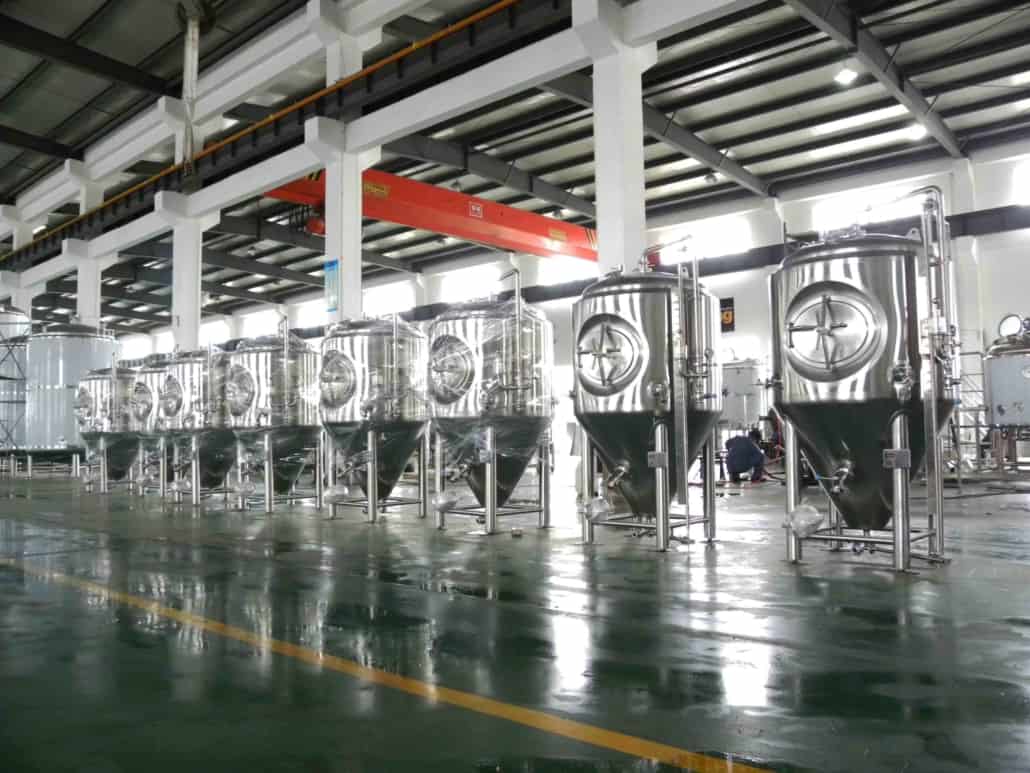
FAQ
Q1: What is the difference between a microbrewery and a nanobrewery?
A nanobrewery typically produces beer in small batches, often not more than 3 barrels at a time. Microbreweries, on the other hand, are larger and can produce up to 15,000 beer barrels annually. The main difference lies in their production capacity.
Q2: How do I clean and maintain my nanobrewery equipment?
It’s crucial to clean your equipment after each use. Most equipment comes with manufacturer instructions on cleaning. Typically, a combination of water, food-safe chemicals, and sanitizers are used. Regular maintenance checks are also essential to ensure the longevity and efficiency of the equipment.
Q3: Can I customize my equipment if I purchase from YoLong Brewtech?
Yes, YoLong Brewtech specializes in fabricating custom-designed brewing equipment tailored to the customer’s specifications. You can discuss your unique requirements with them to get a solution that best fits your brewing needs.
Q4: What kind of beverages can I produce with nanobrewery equipment?
While nanobrewery equipment is primarily designed for beer, many modern setups allow for the production of various beverages like cold brewed coffee, kombucha, infused teas, and wine, especially with versatile equipment providers like YoLong Brewtech.
Q5: Is Chinese-manufactured nanobrewery equipment of good quality?
Absolutely. Many Chinese manufacturers, including YoLong Brewtech, produce equipment that meets international quality standards. They have invested heavily in R&D and use state-of-the-art technologies to ensure their products are durable, efficient, and reliable.
Q6: How long does it take for the equipment to be shipped once ordered?
The shipping time can vary based on the supplier, the customizations required, and your location. It’s always best to discuss shipping timelines directly with the supplier. YoLong Brewtech, given its global outreach, typically has efficient logistics in place to ensure timely deliveries.
Q7: Are there any warranties or after-sales services provided with the equipment?
Most reputable manufacturers, including YoLong Brewtech, provide warranties for their products. This ensures that in the event of defects or malfunctions, repairs or replacements can be done. Additionally, comprehensive after-sales support, including maintenance guidance and technical support, is often provided to ensure the equipment’s optimal functioning.

